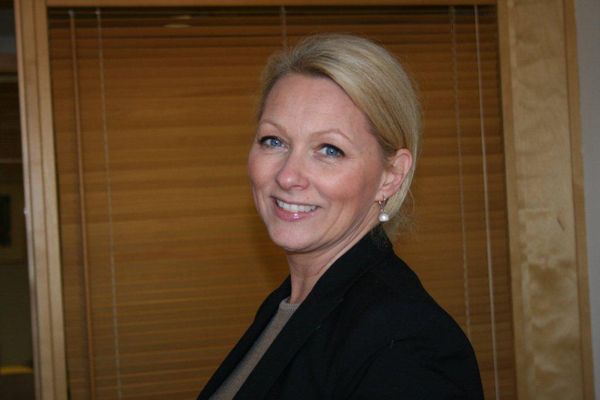
Your Voice: The fastest growing fundraising channels risk distancing us from our supporters
December 4, 2019
Why fundraising leaders need to come together to shape the future of F2F
January 22, 2020As we draw to the end of the decade, what will 2020 bring for fundraising? Fundraising Europe asks experts from across Europe what they perceive to be the biggest challenges and opportunities.
Recent years have brought about rapid change to the way that charities fundraise. Technology has transformed how charities interact with the public, equipping supporters to become fundraisers and enabling people to donate quickly and easily from their mobile phones, on contactless or through social channels. There are more charities than ever before and a broadening array of enterprises and other organisations driven to achieve social good, all competing for their own space in the market, and for the hearts and minds of supporters.
So, as we head for the year end, we asked the European fundraising community what will be the biggest challenges and opportunities for 2020?
Continued uncertainty over donor numbers and retention
When it comes to the challenges that lie ahead, the general consensus is that 2020 will see charities continue to battle the double-edged sword of a diminishing donor loyalty amid an increasingly restrictive fundraising environment.
As the public becomes ever more discerning and expectant of charities, supporters are quick to move on and take their support elsewhere if charities fail to meet their needs. Becoming more donor-centric and finding better ways to communicate impact were common themes among the fundraising community.
“One of the biggest challenges we are facing is the decrease in supporter loyalty,” says Rikke Solberg, communications manager of the Norwegian Fundraising Association.
“The Institute of Social Research shows that the number of Norwegian volunteers is going down, and we know that donor numbers are falling too. Donors are starting to shop around between organisations, rather than remaining a life-long supporter. Charities have to work harder than ever not only to attract supporters but to keep them engaged.”

Astrid von Soosten, Brakeley Fundraising Consultants
Astrid von Soosten, partner at Brakeley Fundraising Consultants agrees, saying that every charity board should be considering what they can do to win new supporters as the donor pool continues to shrink in all developed fundraising markets.
She states: “It is of paramount importance to think about how to engage the next generation of donors as their priorities are very different from those of current supporters, especially when it comes to major donors. Capturing the interest and support of the next generation of major donors will require a completely different approach and we are only beginning to get a sense of what this may look like.”
With donor numbers in decline, supporter care is vital, and high value philanthropy has really come to the fore. Peter Lewis, chief executive of the Institute of Fundraising, cites legacy fundraising as the “biggest opportunity” for fundraisers in 2020, saying: “Legacies have proved to be vital for an increasing number of charities across the sector and I anticipate that legacies will grow once again in 2020. Charities can look to Remember A Charity and the growing network of legacy consortia across Europe for support in developing this method of fundraising.”
Restrictions to the fundraising environment
While donor numbers continue to fall in more developed fundraising nations, this isn’t necessarily the case across the board. Although limited data is available, charitable giving across parts of Central and Eastern Europe is on the rise, with the latest annual data from the Czech Republic reporting 16% growth in individual giving.
Eduard Marček, co-founder and head of the Slovak Fundraising Centre and

Eduard Marček, Slovak Fundraising Centre & EFA
EFA president says: “Our biggest challenge is that we are working against a backdrop of rising populism. Governments are limiting the free space for NGOs and their ability to fundraise, even in the most established democracies.”
The Stop Sorus Bill, introduced in June 2018 in Hungary, is surely one of the most strident measures to restrict the work and influence of charities, but a general tightening of legislation across the continent highlights the challenge facing the fundraising community.
Speaking of the situation in Austria, chief executive of Fundraising Verband Austria Günther Lutschinger says: “There is a lot of regulation that restrains charities. Supporters who give to animal protection and education programmes in Austria, for example, aren’t eligible for tax relief on their donations. This can imply that those causes aren’t as important as others and it’s an ongoing challenge to convince Government of the need to level the playing field and show more support to non-profits across the sector.”
While the trend seems to be for an increase in restrictions at statutory levels, it’s important to highlight that this doesn’t apply across the board. The Finnish government, for example, recently chose to bring in a new Fundraising Act, which comes into force in 2020, reducing bureaucracy and making it easier for smaller charities, in particular, to fundraise. In Slovenia too, the introduction of a new charity Act came with the creation of a fund to support the development of NGOs in the country.
Marček adds: “While the rise of populism has been a real concern, we can also see more active participation in social issues among the general population, especially the young. This has led to an increase of civic movements, with the public stepping up to take action. This comes hand in hand with digitalisation of our lives, which enables individuals to play a key role in achieving change, whether through campaigning, volunteering or fundraising.”
Technology and digital transform drive change
Looking to the future, fundraisers recognise the immense opportunity of digital and technological developments, which continue to transform the way charities engage with supporters.
Peter Lewis adds: “Innovations in social media in 2020 will increase the impact that giving platforms and social channels have on the way we fundraise. It’s key for us to diversify the way we engage new people using these innovations, and still maintain our core audiences, to raise even more funds for our causes.
“This year we saw the introduction of the donate button on Instagram, further uptake of Facebook fundraisers, and loads of new ways charities are engaging with their donors. I’ll be interested to see how these develop – but we know that technology and innovation will be the theme of 2020.”
The pace of change is unlikely to diminish in the years to come and this can make it all the more challenging for charities to keep up. Kirsi Mettala, head of global fundraising hub at Plan International, says: “The challenge is for us all to stay abreast of changes, while operating cost-effectively.”
As technology continues to evolve, this means tracking developments and ensuring that charities meet donors ‘where they are’ on their channels and offering approachable ways for them to get involved.
Mettala highlights that there is a great opportunity to provide more authentic, one-on-one experiences through new technology. She adds: “Ultimately, it’s about doing what we can to provide an even better donor experience. It will be particularly exciting to see what artificial intelligence and Blockchain can bring to the table as this technology becomes more mainstream.”
Of course, digital channels do not sit in isolation, Fernando Morón, director of AEFr, said: “Innovation in fundraising will come when we get new audiences through new channels and creating new relationships with our organisations simultaneously. We cannot think and act in a watertight way, only in new channels, only in new audiences or only in new products. We have to prepare organisations for a new way of relating to the environment, the donor and potential donor.”
Need for collaboration to accelerate change and demonstrate impact
Innovating to adapt to the changing market and to make best use of technology and digital channels will be vital, but collaboration is also recognised as one of the sector’s greatest strengths. The ability and willingness to collaborate to achieve change across borders, enables the sector to provide a united front on common issues and to accelerate change.
Giving Tuesday is a prime example of sector collaboration at its best; an international drive to promote and celebrate charitable giving, which was championed in more than twenty European nations yesterday. So too is the growth of consortia across Europe working to grow legacy giving.

Gosse Bosma, Schinkelshoek & Verhoog
“Collaboration is particularly important when it comes to working in the political arena for protecting civic space,” says Gosse Bosma independent public affairs advisor and associated partner at Schinkelshoek & Verhoog (The Hague). He adds that it will also play a role in developing a clear and strong narrative about the sector’s impact.
Mettala agrees that finding a way to communicate social impact will be essential for 2020: “We need to continue an open dialogue around the best and most appropriate ways of driving long-term social impact linked to what we are fundraising for.”




